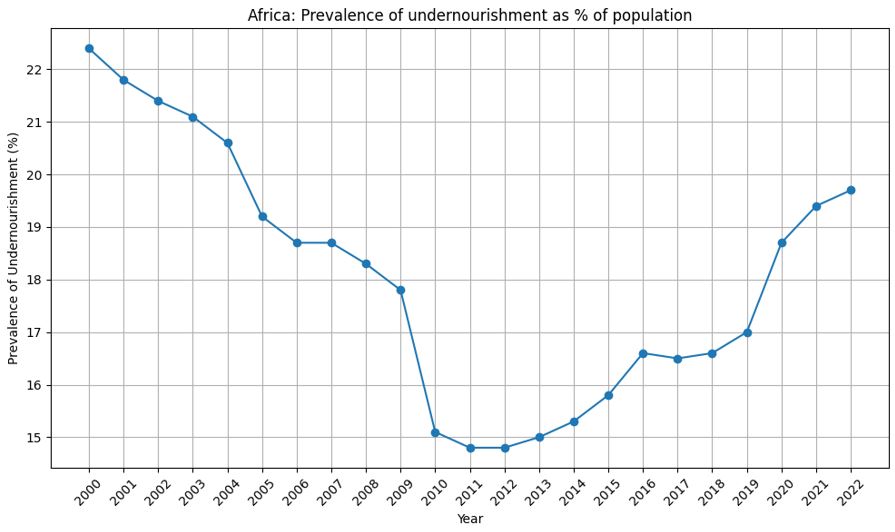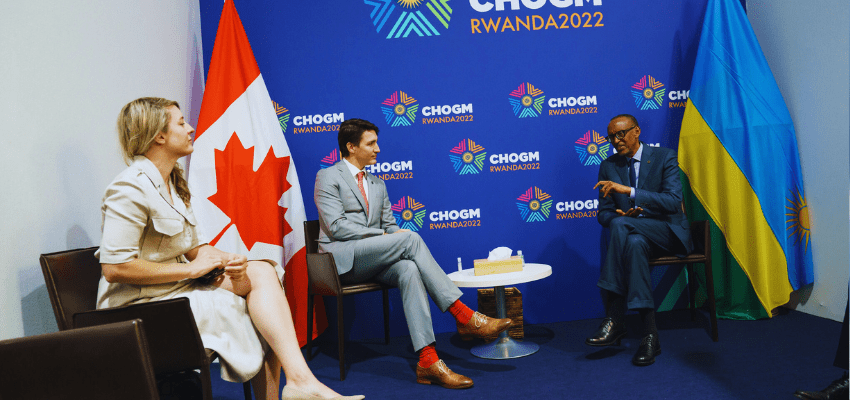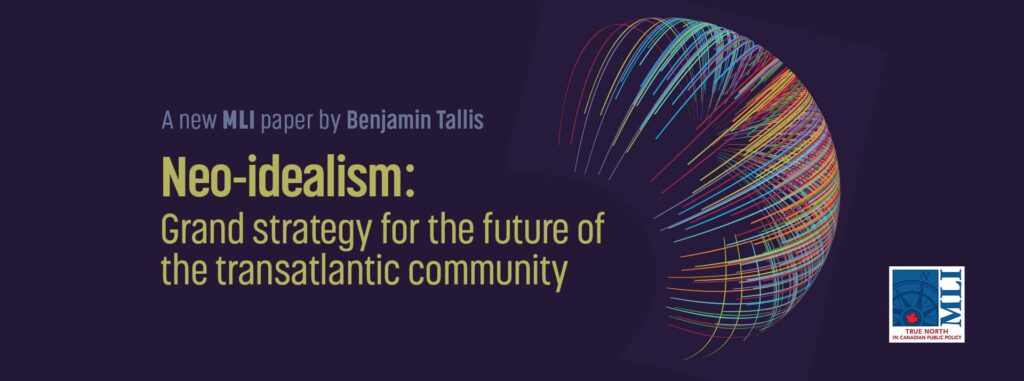By David Clinton, November 28, 2024
Global Affairs Canada spends most of its $7 billion annual budget on foreign aid. It’s certainly a generous gesture – but is it money well spent?
Unfortunately, there’s little to no evidence of meaningful assessments of the federal department’s methodologies and results. For organizations trusted with public funds, accountability demands regular and transparent program assessments along with periodic mandate reviews. But GAC’s oversight seems to be sorely lacking.
GAC and the Global Fund
According to GAC’s Project Browser tool, between 2008 and 2022 Canada committed $3.065 billion to the Global Fund to Fight AIDS, Tuberculosis and Malaria. So, how effective was that funding in improving health outcomes?
First off, it’s important to note that the Global Fund to Fight AIDS, Tuberculosis, and Malaria has been dogged by serious accusations of corruption and lack of transparency for more than a decade. In terms of accounting for GAC’s funding,
the Global Fund set lofty goals in its The Global Fund Strategy 2017–2022: Investing to end epidemics, including that by 2020:
- that“90 per cent of people living with HIV (PLHIV) know their status
- that 90 per cent of PLHIV who know their status are receiving treatment
- and that 90 per cent of people on treatment have suppressed viral loads.
It also promised a 20 per cent decline in the TB incidence rate and a drop of 35 per cent in TB deaths compared with 2015, and a reduction of at least 40 per cent in malaria mortality rates and malaria case incidence compared with 2015.
GAC planners obviously felt that spending $3 billion over five years or so was reasonable as long as between 2015 and 2020 it contributed to the indicated declines in both TB and malaria deaths, as well as the aforementioned 90%-90%-90% formula for people with HIV.
Unfortunately, it appears that the program fell far short of its stated objectives.
According to the online database Our World in Data, malaria killed 562,000 people in 2015 and 627,000 in 2020. That’s a jump of 11.6 per cent, as opposed to the 40 per cent decline that was expected.
According to the WHO, there were 1.6 million tuberculosis victims in 2015 against 1.2 million in 2023. That’s a 24.7 percent drop – impressive, but not quite the required 35 per cent.
GAC reporting claims that: “Since 2002, (their) efforts have contributed to a significant decline in deaths caused by AIDS (‑70%), TB (‑21%) and malaria (‑26%). Canada also announced an additional commitment of $1.21 billion at the Global Fund’s Seventh Replenishment pledging conference in September 2022.” However, the GAC report provides no sources for its claims. Indeed, its figures are badly outdated and fail to account for program spending after 2015.
Most importantly, with such vaguely stated objectives, no one could have known whether we’d actually achieve those results. And even if the predicted declines did materialize, how could anyone ever be sure that they were the results of just those international programs? With no standards or evaluation criteria presented in the program documents, how are taxpayers expected to measure the effects of the interventions on the stated objectives? The massive spending program feels a lot more like a blind gamble than a calculated investment.
GAC and the World Food Programme
Between 2016 and 2021 GAC entrusted a total of $125 million to the UN World Food Programme to provide emergency food aid. Africa represented 60 per cent of the program’s target, and the one policy marker designated as a “significant objective” was gender equality. The programs expected results included:
- Improved access to food and nutrition assistance for food-insecure populations.
- Increased ability of the World Food Programme to provide appropriate responses to humanitarian crises.
Overall, the “expected ultimate outcome is the reduced vulnerability of crisis-affected people, especially women and children.” There was nothing more detailed than that and no indication of the specific methodologies they would employ or even which key performance indicators they would use to measure outcomes.
Regardless, the big-picture numbers moved in the wrong direction. As the graph illustrates, numbers from Our World in Data show that the percentage of people across the African continent who lack the minimum daily caloric intake – despite years of declines – has been climbing steadily precisely through the GAC’s program timeline. Malnutrition has risen from 15 to 19.7 per cent of the population since 2013.

It’s true that some of these conclusions come with some risk of oversimplification. There could well have been powerful geopolitical or macro-economic changes behind surges in malaria and malnutrition. Perhaps those crises would have been even worse had Canadian funding not been in place. Global events seldom have easy explanations. But those caveats should apply just as strongly to GAC’s own program analysis. And there’s apparently no evidence that GAC has addressed the ambiguity.
GAC and the United Nations Relief and Works Agency
The Government of Canada – through GAC – has long been among the major financial supporters of the United Nations Relief and Works Agency for Palestine Refugees in the Near East (UNRWA). Leading up to the Hamas massacre on October 7, 2023, the 75-year-old UN agency had a yearly budget of more than US$900 million – despite long-standing accusations of antisemitism, corruption, and complicity in war crimes.
At various points during UNRWA’s existence, the Netherlands, Switzerland, and the United States all suspended payments to the organization over related concerns. The Harper government cut funding to UNRWA in 2010, but the Trudeau government restored it in 2016. Canada briefly froze funding to UNRWA in January 2024 due to the organization’s connections to the October 7 attacks but resumed it in March.
Since 2016, Canada has donated approximately $250 billion to UNRWA – raising serious questions as to whether Canada is inadvertently funding antisemitic or even criminal behaviour.
Last February, the Standing Committee on Foreign Affairs and International Development issued the following motion about UNRWA improprieties: “That the committee express its deep concern about certain educational materials circulated to students by UNRWA during the pandemic in error that violates the values of human rights, tolerance, neutrality and non-discrimination, at a time when UNRWA is receiving funding from the Government of Canada and report this motion to the House.”
The committee’s motion came in wake of a report published by the Institute for Monitoring Peace and Cultural Tolerance in School Education (IMPACT-se) that documented many instances of the glorification and promotion of violent jihad, martyrdom, and terrorism within UNRWA educational materials.
Despite international criticism, the controversial materials are still being printed and widely taught in UNRWA schools (when they’re operational).
Further research by IMPACT-se in the aftermath of the October 7 attacks has revealed how, for instance, “13 UNRWA staff members have publicly praised, celebrated or expressed their support for the unprecedented deadly assaults on civilians.” The report also documents how at least 18 UNRWA graduates have “died carrying out acts of terror.”
In another damning development, it was recently revealed that Fatah Sharif, a school principal and the head of UNRWA’s teachers association in Lebanon, was actually a senior Hezbollah commander. Meanwhile, UNWRA facilities, including hospitals and schools, have been used by Hamas and Hezbollah as rocket launching areas, weapons storage facilities, and access points for Hamas military tunnels – all clear war crimes. Indeed, the UN itself admitted that at least nine of its employees “might have” been involved in the October 7 massacres and will be fired.
In June 2023 – four months prior to the October 7 attacks – the GAC pledged to work closely with UNRWA to ensure that its staff didn’t support or engage in Hamas terrorism:
“Canada will remain closely engaged with UNRWA and continue to exercise (sic) enhanced due diligence for all humanitarian and development assistance funding for Palestinians. This work includes ongoing oversight, regular site visits, a systematic screening process and strong anti-terrorism provisions in funding agreements.”
Clearly, UNRWA’s close connections with Hamas indicate that Canada’s “oversight” and “regular site visits” had little to no effect. In summary, the GAC spends hundreds of millions of dollars on multi-year agreements with multilateral organizations – but key success indicators are rarely met. Persistent rumours of corruption and incompetence (and worse) often hover above the largest aid organizations. Yet, beyond vague, buzzword-rich statements in the GAC’s annual reports, there’s little evidence of comprehensive program and mandate assessments within GAC itself. They might happen, but they’re not telling us. And that’s a problem. (Repeated efforts to reach GAC officials for comment were unsuccessful.)
Canadians have a right to know how their money is spent. It would be helpful if the government, and Global Affairs Canada in particular, would at the very least tell us exactly how they’re going to fix these messes.
David Clinton is the publisher of The Audit (www.theaudit.ca), a journal of data-driven policy analysis, and a contributing writer to the Macdonald-Laurier Institute.







